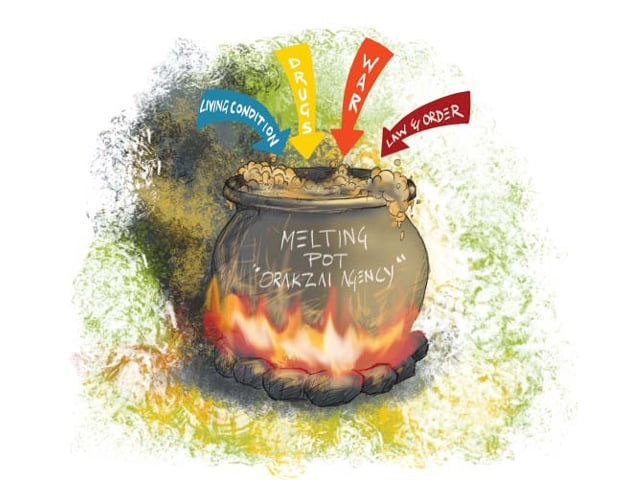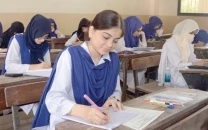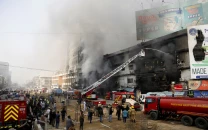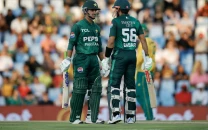Peace a distant future?
Tribal areas left stuck in a rut of poverty and ignorance, ongoing insurgency not just ‘ideologically inspired’.

These areas were left stuck in a rut of poverty and ignorance. The tribal region has been left at odds with the larger cities due to minimal contact with other parts of the country in the last 60 years.
Upon taking a turn from Kohat Hangu main road to the Orakzai Agency, the landscape changes, as the road snakes through huge plains surrounded by green hills one can see large signboards declaring the area as game reserves.
After a half and hour drive from the Kaacha Pakka area one arrives at the Boah check-post, the gateway to the Orakzai Agency, where the landscape once again changes. A stark contrast to the barren expanses of the southern parts of Khyber-Pakhtunkhwa, one can see greenery every where.
Fit for being developed into a tourist spot, this area has been left untouched by the government who has shown little interest in developing this region. What one sees now are endless fields of cannabis plantations that run along the road all the way up to Kalaya.
Cannabis is the main source of income for the people in this area and speaks volumes about the government’s intentions about bringing these areas at par with other parts of the country.
Traffic on the roads is scarce, while the graffiti along the roads points towards the menace of sectarianism in this area. Lower Orakzai Agency headquarters, Kalaya, is situated some two and half kilometers away from Kohat. Political administration offices can be seen in open fields here where soldiers are seen cleaning their weapons.
Since March 24 2010, a military operation is underway in this agency against Taliban insurgents and while security forces claim to have cleared at least 90 per cent of the area from insurgents, the lives of locals have changed little over the past six months.
Peace, many locals say, is a distant future still. Mohamamd Zareef, a tribal elder told The Express Tribune that all they want is peace after this long spell of militancy, which has not only rendered them homeless but also ruined their livelihoods.
“We lost four seasonal crops first because of the militancy in the area and now because of the operation,” Zareef said. Locals feel let down by the government who has failed to provide them with any health, education and transportation facilities.
“Sometimes we wonder if were all part of the same country,” Zareef said. “We have to take our sick to Peshawar, there are no health facilities here for us and sometimes we can’t make it on time,” he added.
Schools have been demolished by the insurgents who saw the curriculum of the schools as un-Islamic and education for girls a sin. According to tribesmen, there were two boy’s schools and two girl’s schools in the Ferozkhel area alone.
“The schools and health facilities including a Basic Health Unit (BHU) were destroyed following the launch the military operation in the area,” Zareef said.
The agency is being cleared in five phases, so far two phases have been completed, a security official told The Express Tribune. “It is up to the government to fix the situation here, these regions cannot be left ignored and at the mercy of ignorant insurgents,” the official said.
He said that these tribesmen need education, health, transportation and opportunities for employment to get their lives back on track. “We want our lives back, we want our children to go to school and to feel safe in their homes,” Zubaida Bibi said.
Published in The Express Tribune, November 3rd, 2010.


















COMMENTS
Comments are moderated and generally will be posted if they are on-topic and not abusive.
For more information, please see our Comments FAQ